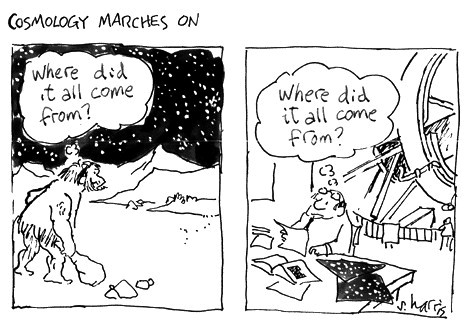From a very young age, we can recognize the quality of sentences. We evaluate sentences according to some standard, some criteria of good, bad, better, or worse.
If God created the world then it is likely that he would endow human beings with some way to recognize good and bad sentences according to some standard. One might think that this would entail that human beings know what makes sentences good or bad. But recognition of the value of an entity does not entail knowing what makes it valuable. This is true of good and bad actions as much as it is true of good or bad sentences. One might not know why murder, theft, or deception are bad even though one can recognize them to be so. If so, then it is not necessary that humans know what makes those sentences good or bad.
If God did not create the world, it is implausible to think (a) that sentences have good or bad making properties (b) that we would find bad sentences objectionable. One might reply that what we mean by ‘bad’ is something like useful. In order for our species to advance, clarity of communication is essential. Thus, we have developed languages that are the most useful means of communicating with one another. Unfortunately, this merely begs the question. Clarity of communication implies a standard–some sentences are more clear than other sentences. Merely suggesting that we have adopted such a standard for the advancement of the species does not avoid the assumption that there is an objective standard to adopt.
Furthermore, the nature of natural human languages does not appear to provide evidence of evolutionary advantage. English, for example, is not merely a mechanism by which human beings advance their selection over other species. Indeed, language is far more complex than a survival mechanism. And, if we were designing a language for this purpose from scratch, we would not choose English!
It seems implausible that we would react to sentences with evaluative judgments of the kind exhibited in an eighth grade classroom. Evaluations are almost always couched in terms of objective value. Sentences are described in aesthetic terms–beautiful, ugly. They are often categorized in an analogous way to how we evaluate the moral status of an action–wrong, wicked, or deviant. This may be for good reason. If God created the world and has designed language for multiple purposes (truth-telling, worship, fellowship), then one would expect him to have designed humans with the ability to recognize and evaluate utterances and inscriptions.



